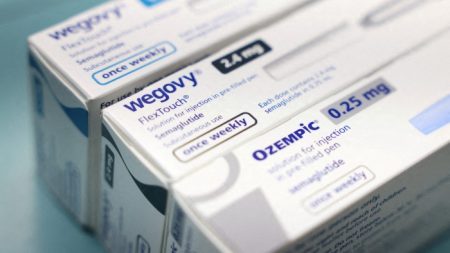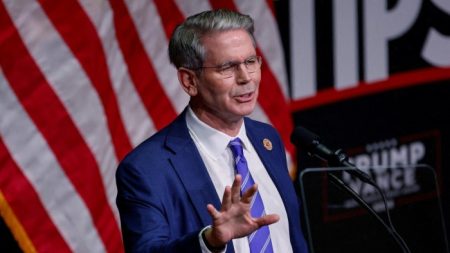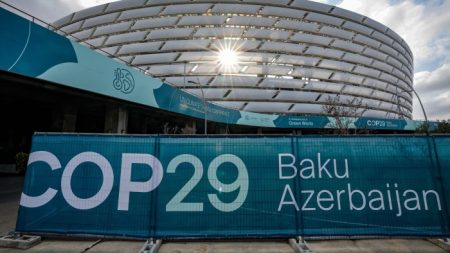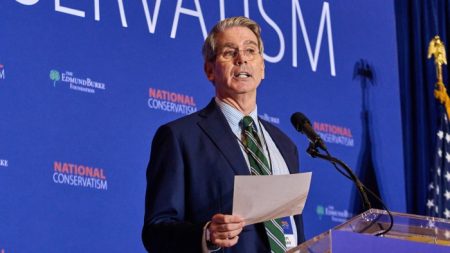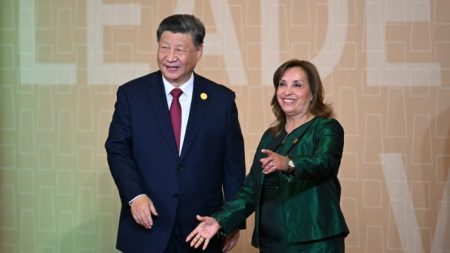Stay informed with free updates
Simply sign up to the UK inflation myFT Digest — delivered directly to your inbox.
The pound hit a one-year high against the dollar on Wednesday after UK inflation figures came in slightly above expectations at 2 per cent for June.
The consumer price data was above analysts’ forecasts of 1.9 per cent and prompted traders to reduce their bets that the Bank of England will lower interest rates from their current 16-year high next month.
But the inflation figure, provided by the Office for National Statistics, remained at the BoE’s target level, which it hit in May for the first time in three years.
After the data release, investors put the probability of a quarter-point rate cut next month at about a third, having previously been evenly split.
The pound climbed 0.5 per cent to $1.3031, its strongest level against the dollar in a year.
The Monetary Policy Committee has signalled it is getting closer to lowering rates from their current 5.25 per cent. However, such a move would hinge on policymakers being confident that underlying price pressures are fully under control.
A key concern has been stubborn services price growth, which is seen as an important gauge of underlying inflation. The latest figures showed services inflation holding steady at 5.7 per cent in June, ahead of analysts’ expectations for a decline to 5.6 per cent.
“It’s the stability of services inflation at 5.7 per cent that’s the blow,” said Paul Dales at Capital Economics. “As a result, the chances of an interest rate cut in August have diminished a bit more.”
Wednesday’s data marked the final inflation release before the MPC’s August 1 meeting, at which it will announce its next rate decision.
The higher-than-expected inflation figure came hours before the King’s Speech, which will lay out the new Labour government’s plans to “take the brakes off Britain” in an attempt to spur economic growth.
“It is welcome that inflation is at target, but we know that for families across Britain, prices remain high,” said Darren Jones, chief secretary to the Treasury.
“That is why this government is taking the tough decisions now to fix the foundations so we can rebuild Britain and make every part of Britain better off.”
Restaurants and hotels were the biggest drivers of price rises in the year to June. Core inflation, which strips out energy and food, was 3.5 per cent, the same rate as in May and in line with analysts’ forecasts.
The BoE described its June decision to hold rates at 5.25 per cent as “finely balanced”, with two of the nine MPC members advocating to reduce rates.
Some other members have since signalled they are on the cusp of backing a rate cut, though the latest economic data may complicate their decision.
Huw Pill, the BoE’s chief economist, said this week that the central bank had made “substantial progress” in its efforts to bring price pressures down, but added that recent indicators had still pointed to “some upside risk”.
The MPC will also look at UK labour market data that is due to be released on Thursday for a further indication of the strength of the economy.
“The continued persistence of wage growth and CPI inflation means the MPC will have to proceed only gradually,” said Rob Wood at Pantheon Macroeconomics, “and the uncertainty about underlying inflation pressure means we expect rate-setters to wait until September for their first reduction.”
Read the full article here



